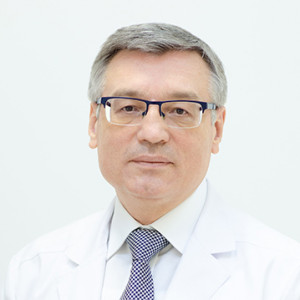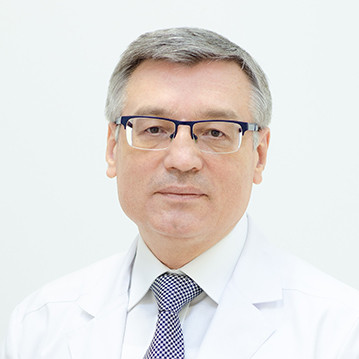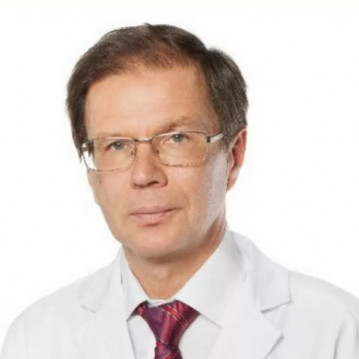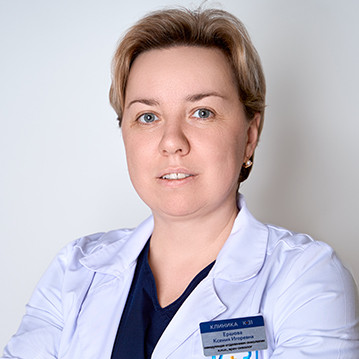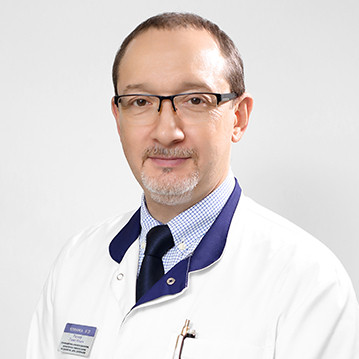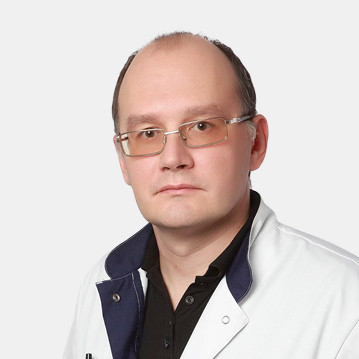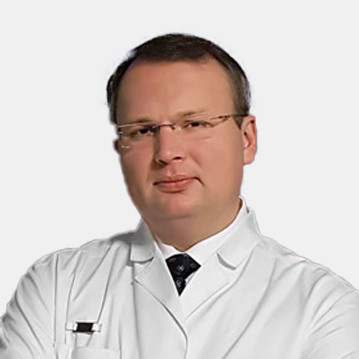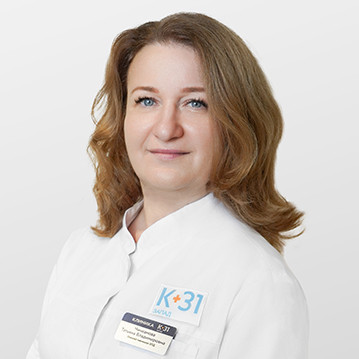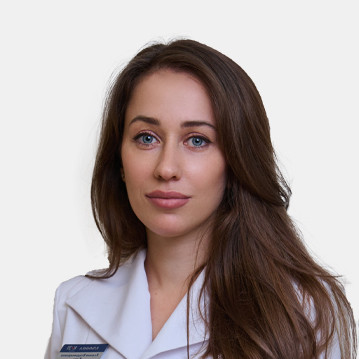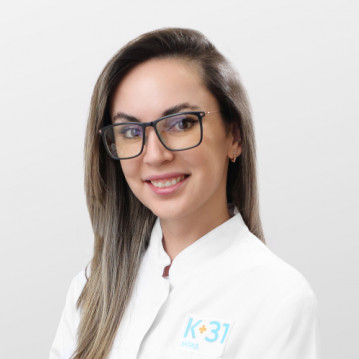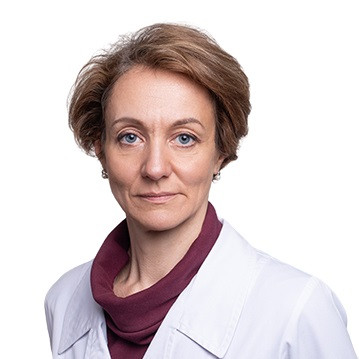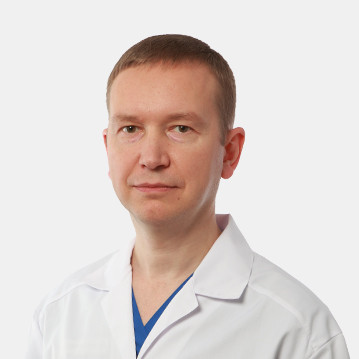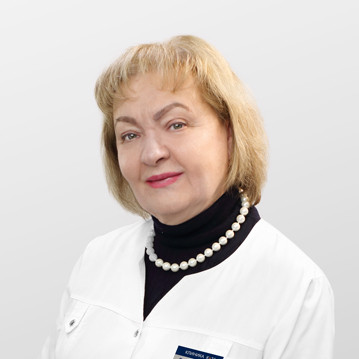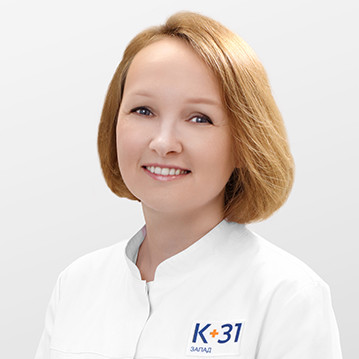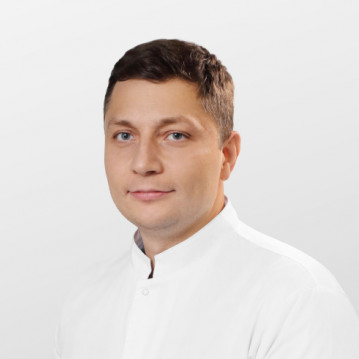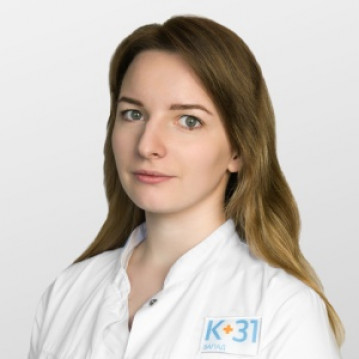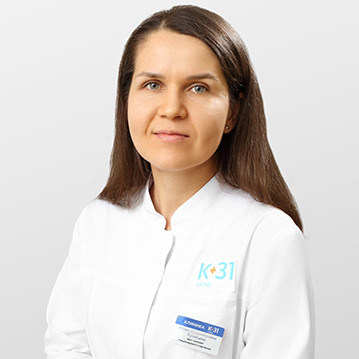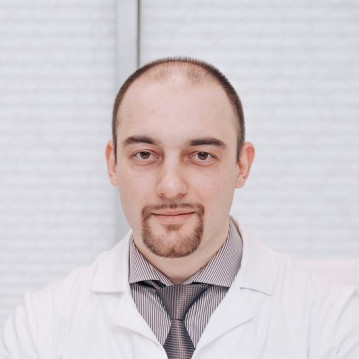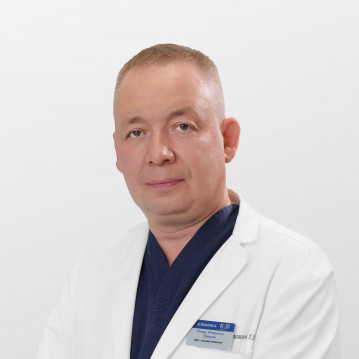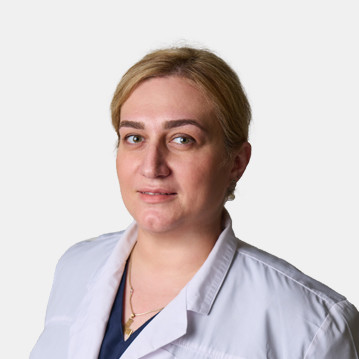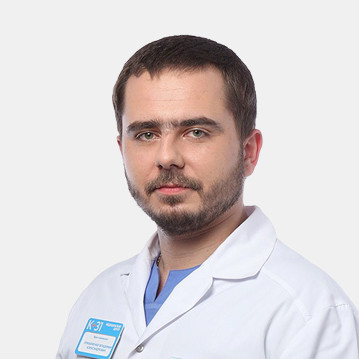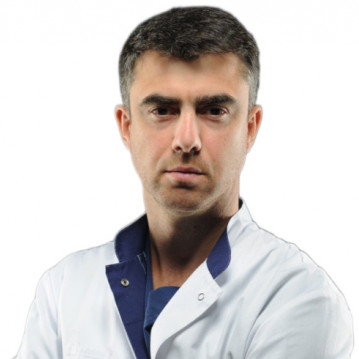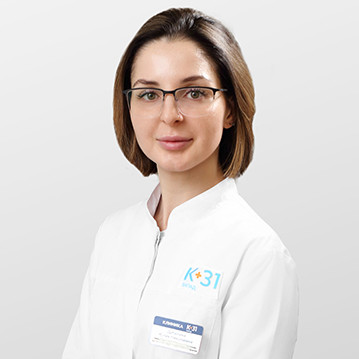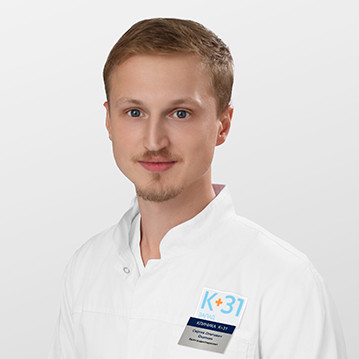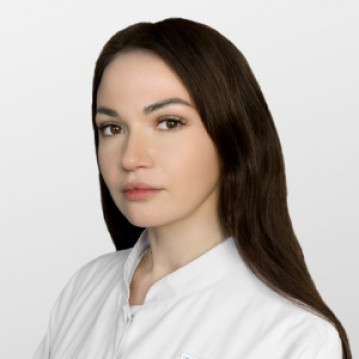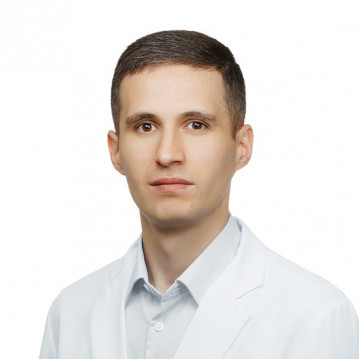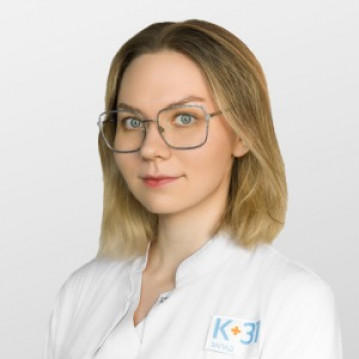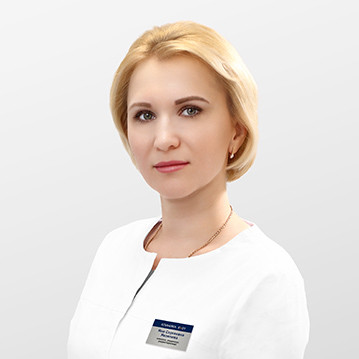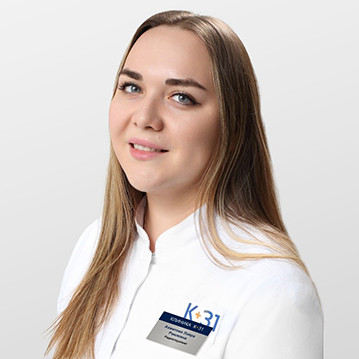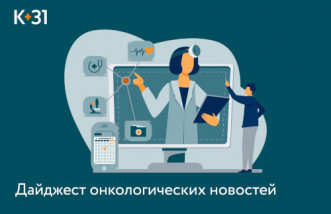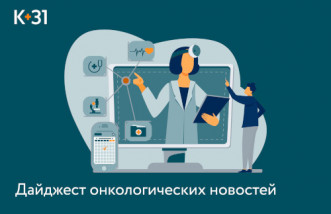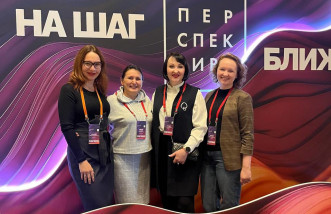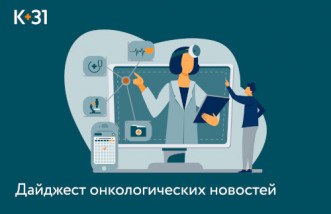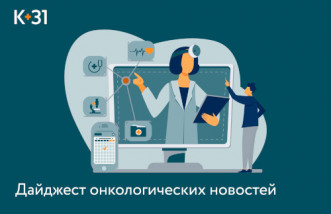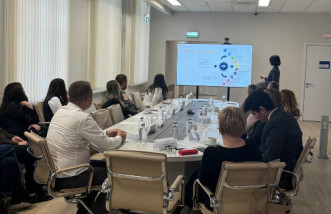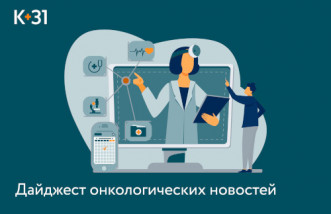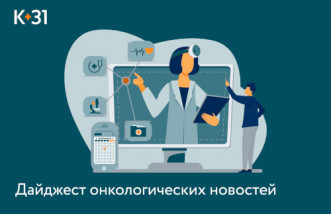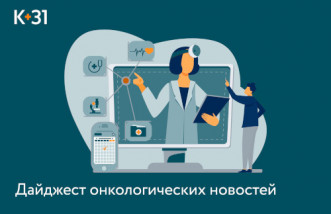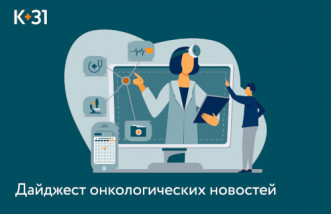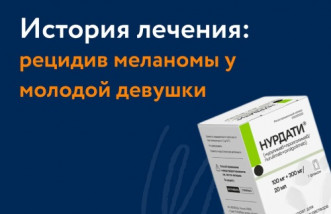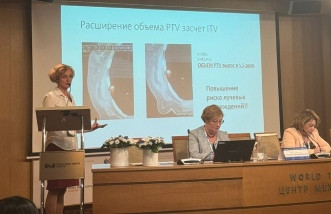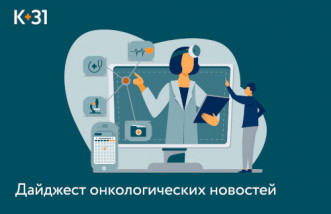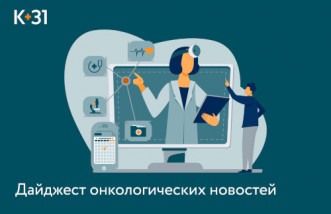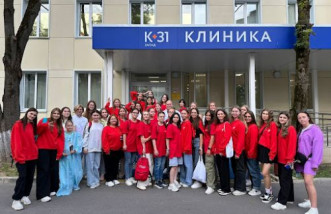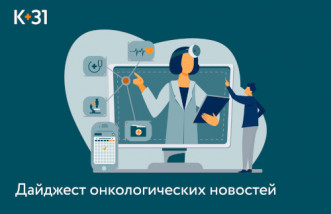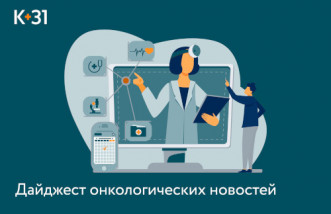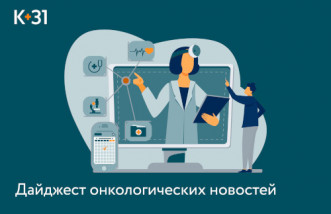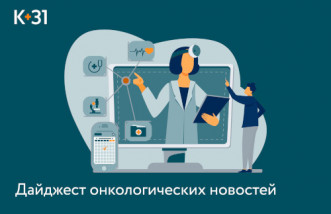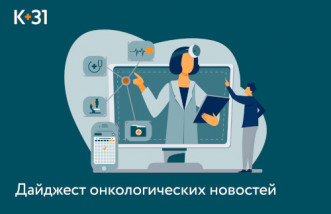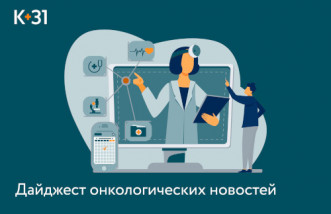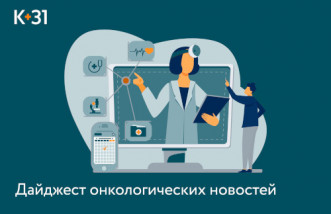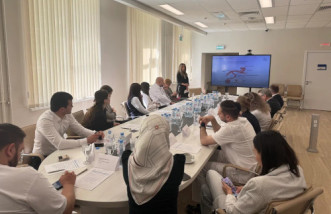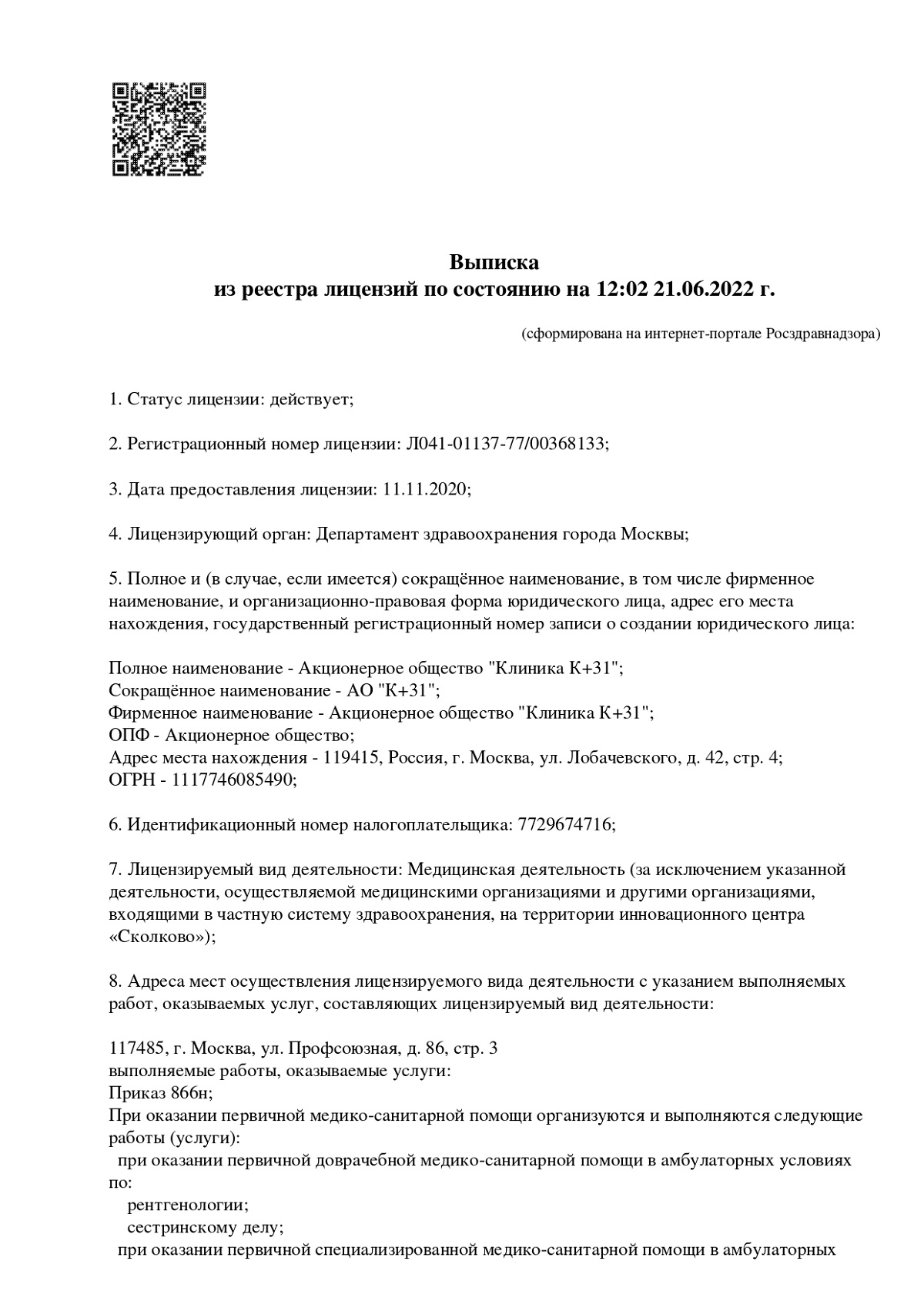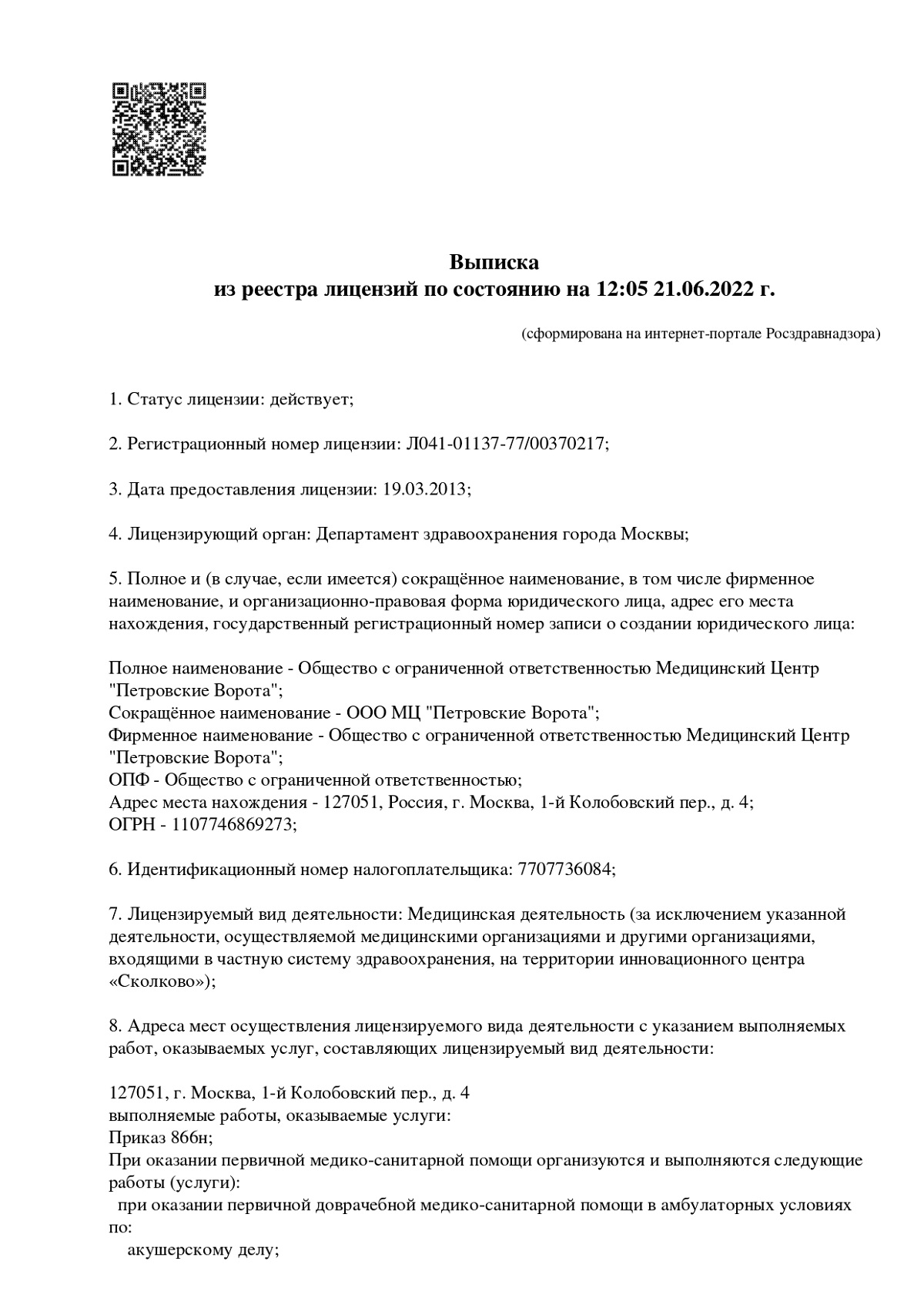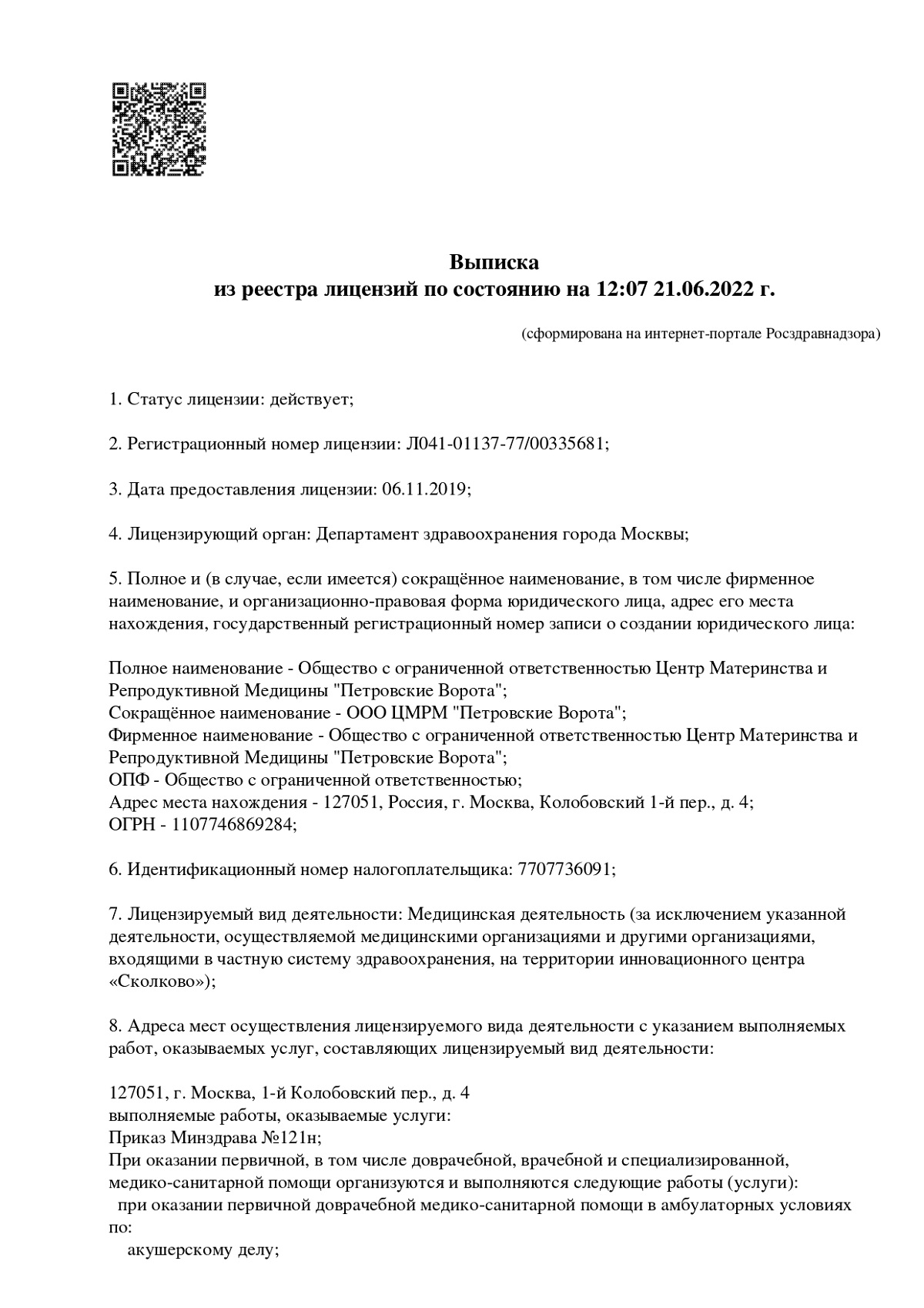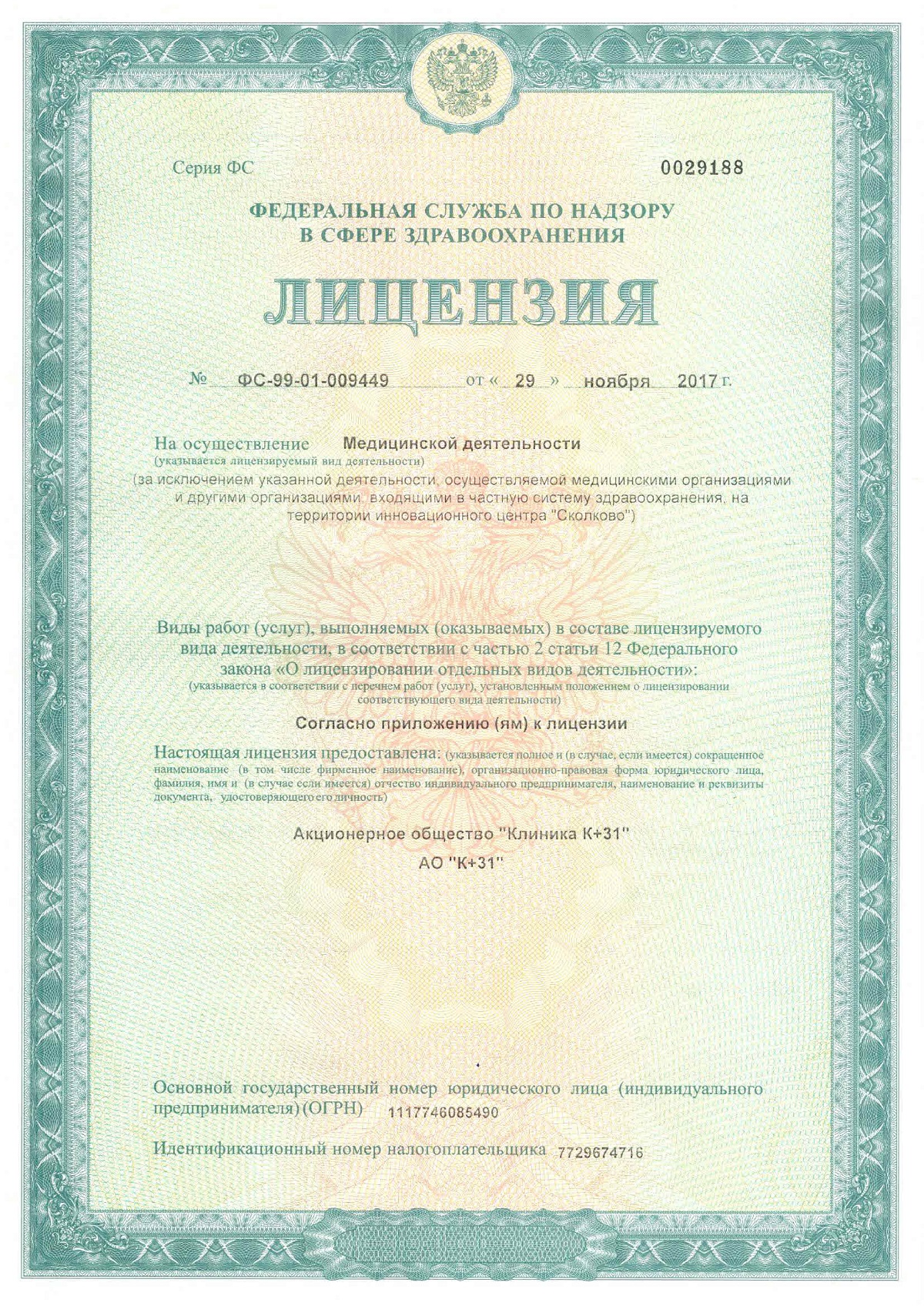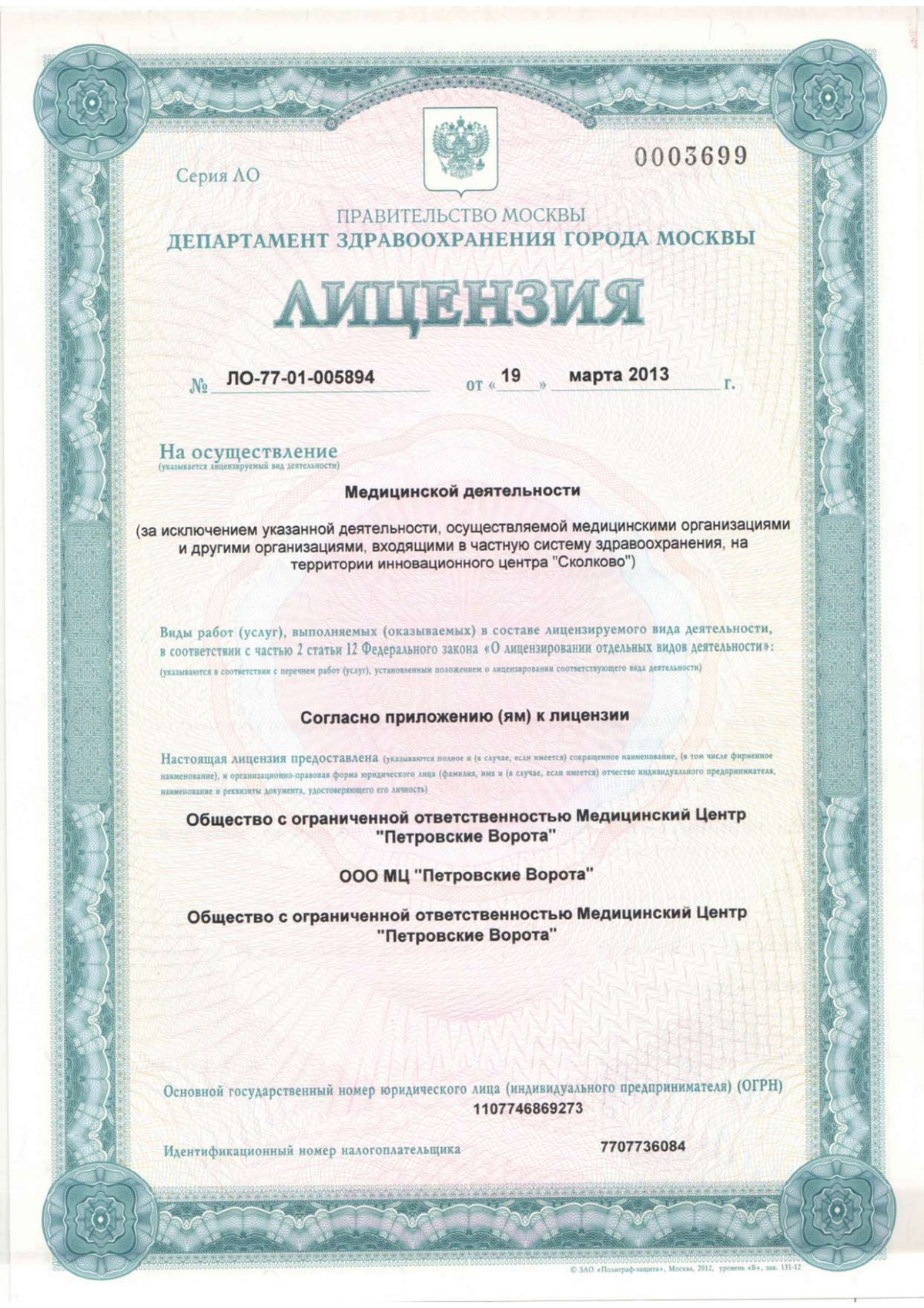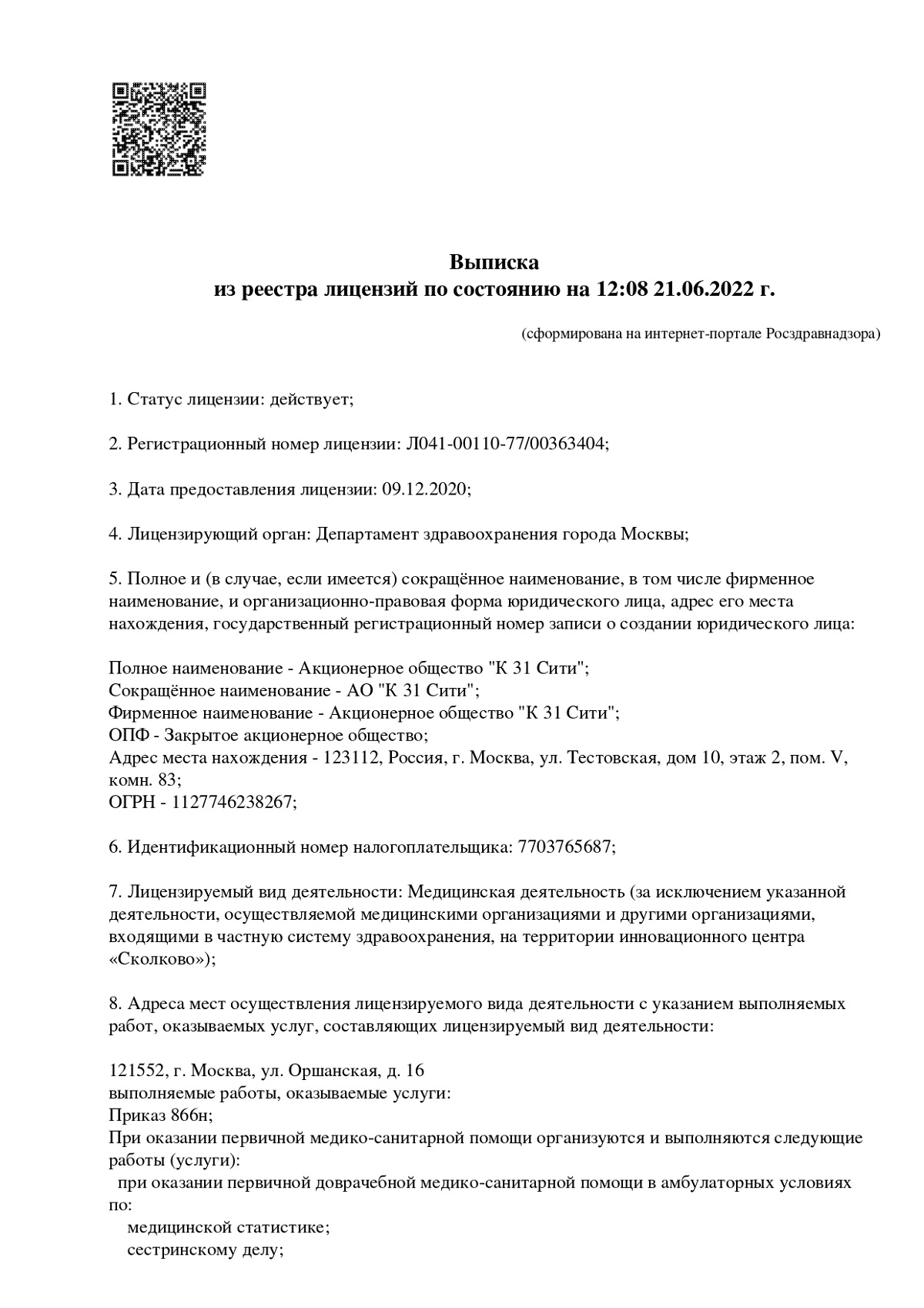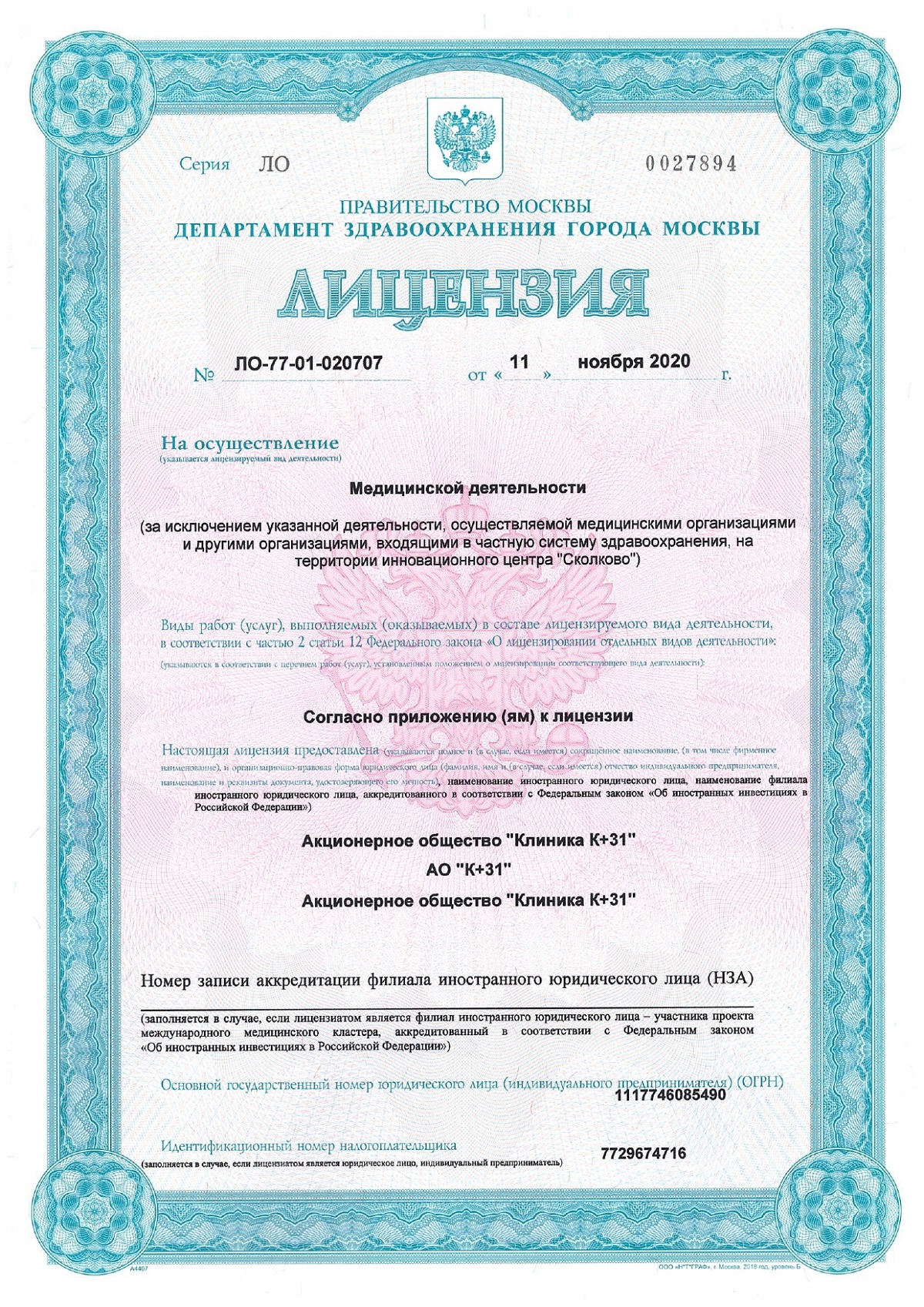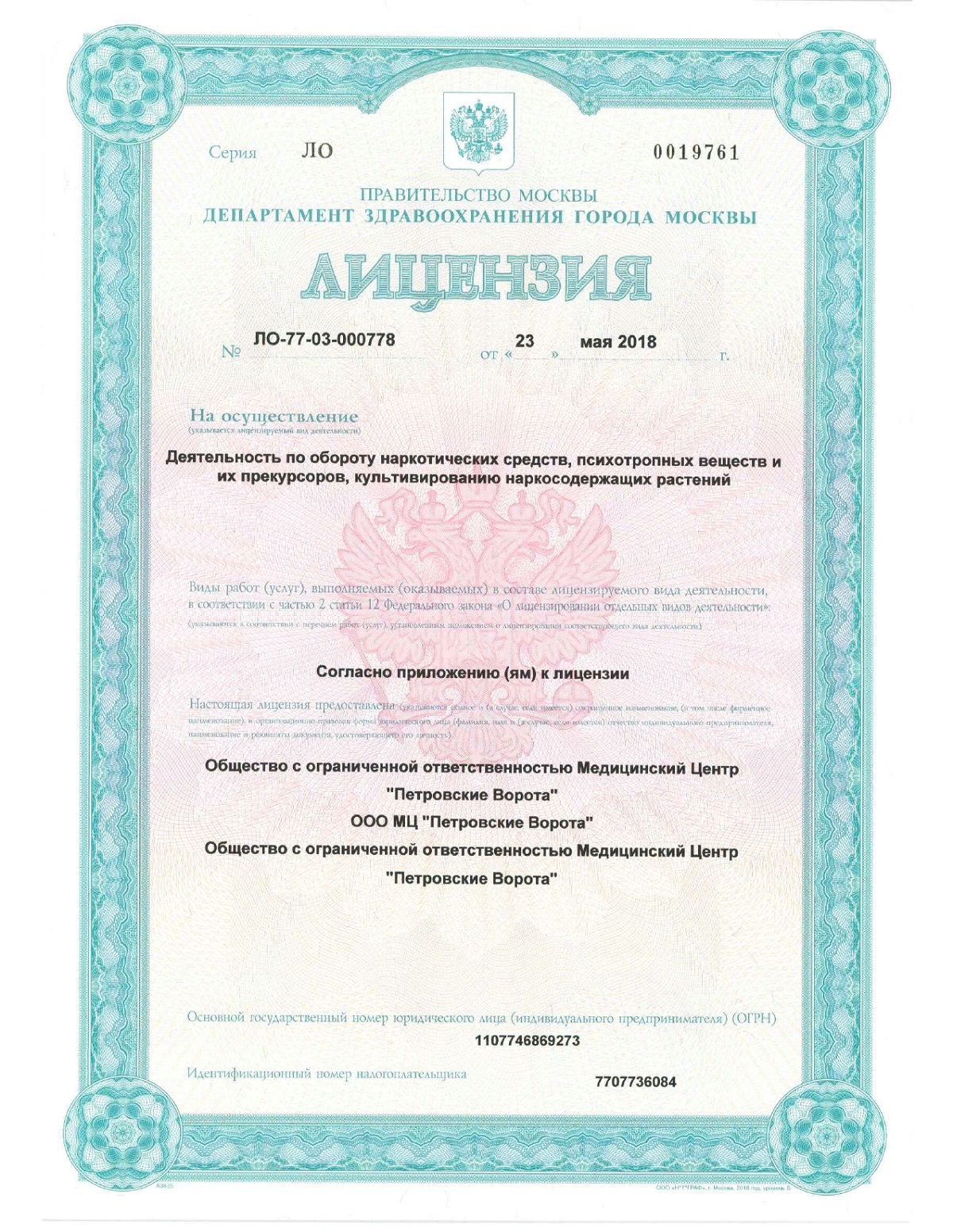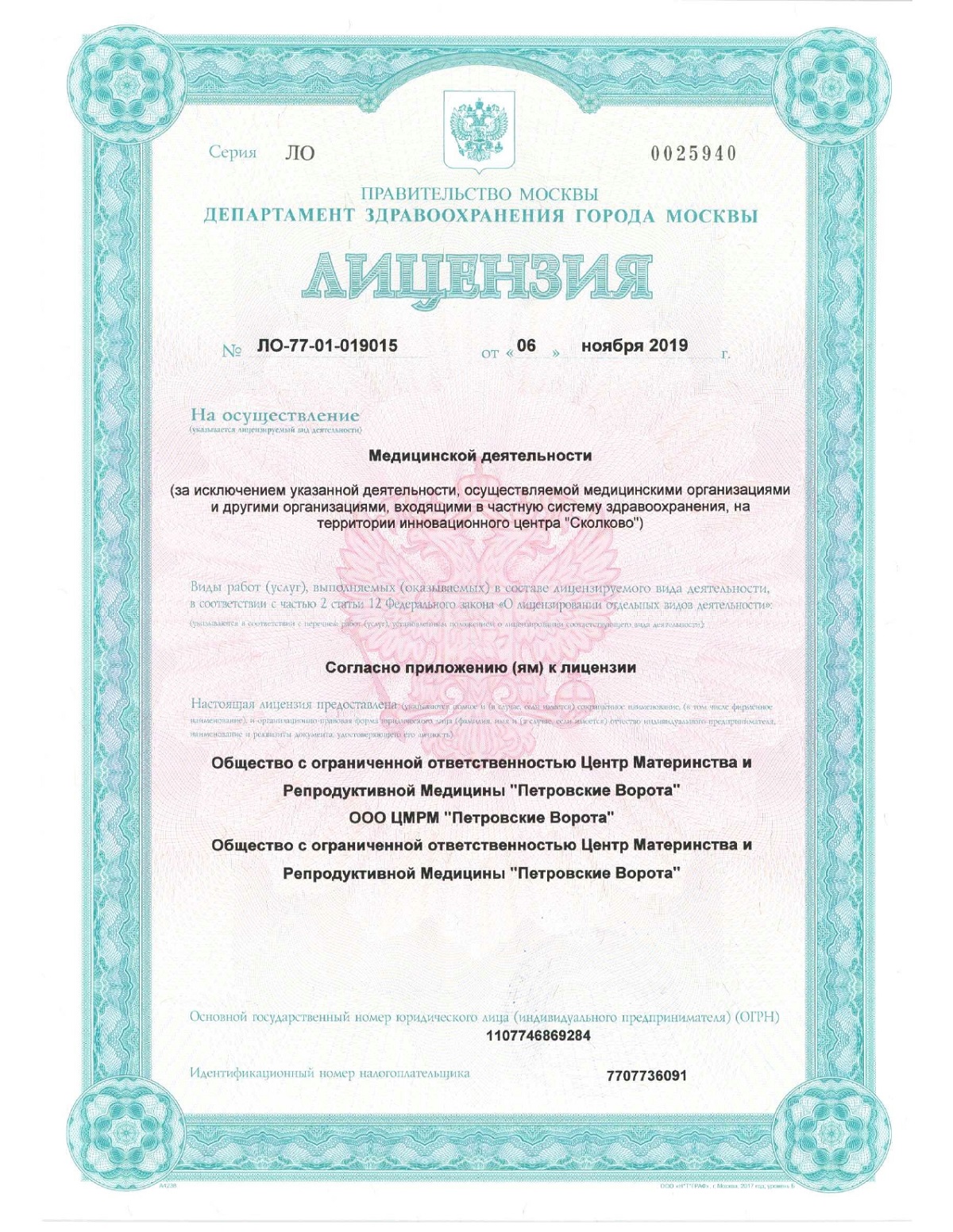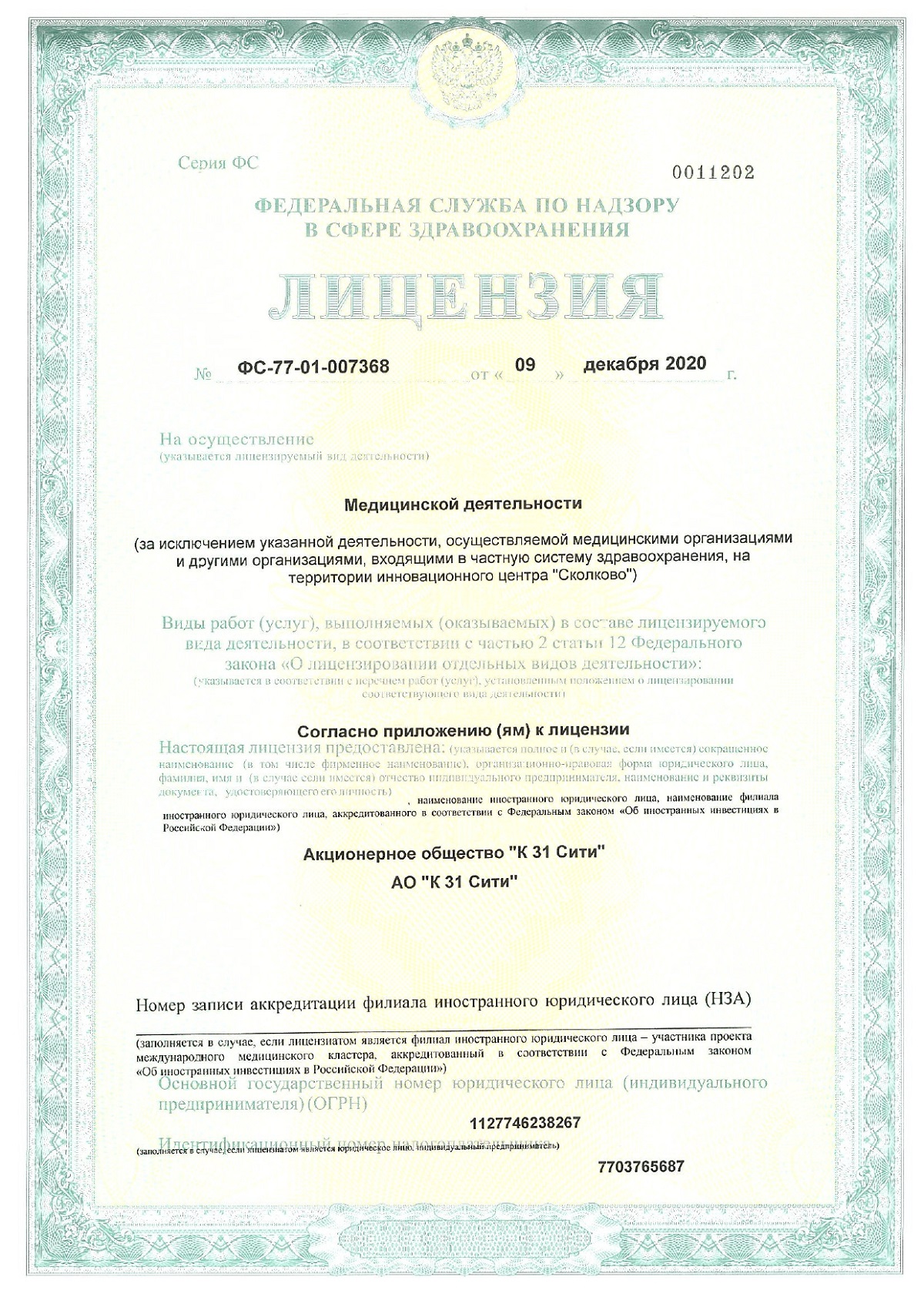- Surgical treatment
- Radiation therapy
- Drug therapy
With us, you can undergo the most in-depth examination, which will help clarify the diagnosis, if any, and receive a prescription for effective treatment. We use, among others, CT, MRI, PETCT and modern endoscopy, which allow us to detect tumors at early stages and accurately assess their characteristics. In our oncology center you can count on high-quality medical care.
Since you may experience various unwanted side effects during treatment, we will definitely offer supportive care. It helps minimize the negative consequences of drug treatment for cancer patients
Our department of antitumor drug therapy is one of the few in Moscow that can offer patient supervision in the early stages of the disease, as well as throughout life after treatment. Medical center K+31 in Moscow provides a full range of free and paid services
The Department of Abdominal Oncology performs diagnostics, treatment and rehabilitation of patients with cancer of the liver, gastrointestinal tract, pancreas, as well as tumors of the abdominal cavity and retroperitoneal space.
Providing multicomponent concomitant therapy to patients with oncological diseases to improve the quality and duration of life, and minimize adverse side effects of antitumor treatment.
Advantages:
- A full range of necessary drugs is always available, which guarantees the continuity and effectiveness of the treatment process
- Highly qualified team of international doctors
- The most modern technological base: linear accelerators, X-ray therapy devices
- Comfortable hospital
The oncological service of the K+31 medical center (Moscow) provides multidisciplinary services to patients. In the oncology department, diagnostic examinations and various types of treatment are carried out: chemotherapy, surgery, combined. We work with tumors in various locations using advanced equipment that the hospital is equipped with. The employees know their job, have extensive experience and do everything possible to restore your health.
Chemotherapy treatment is prescribed for the diagnosis of many pathologies, including tumors of the breast, skin, and soft tissues. Our center provides therapy for any type of oncology at different stages of the disease.
Treatment of diseases
Thyroid diseases
Oncology of the anusTimely diagnosis, including laboratory and high-quality medical care in a clinical center, can significantly alleviate the patient’s condition, in many cases prevent the formation of metastases, and prolong life. Prevention of tumor recurrence plays an important role.
The presence of an anesthesiology-reanimation department allows us to provide emergency care to patients admitted to the clinic in serious condition. Experienced doctors, armed with high-tech equipment and modern medications, do everything possible to save a person’s life. Our medical organization sees doctors from various specialties. If necessary, the patient is referred for a consultation with specialists, for example, to prevent side effects from the cardiovascular system during chemotherapy. There is a day hospital and a rehabilitation center. Numerous positive reviews from patients confirm the high quality of services at the cancer center in Moscow.
Answers to popular questions
What cancer treatments are used?
How are cancer treatment tactics chosen?
What are the benefits and risks associated with cancer surgery?
What is radiation therapy and how does it work?
What is chemotherapy and how does it help treat cancer?
How does cancer treatment affect a patient's quality of life?
What is the role of the immune response in cancer treatment?
What new cancer treatments are available today?
How important is early cancer diagnosis and why?
What cancer prevention measures can you take?
Our doctors

This award is given to clinics with the highest ratings according to user ratings, a large number of requests from this site, and in the absence of critical violations.

This award is given to clinics with the highest ratings according to user ratings. It means that the place is known, loved, and definitely worth visiting.

The ProDoctors portal collected 500 thousand reviews, compiled a rating of doctors based on them and awarded the best. We are proud that our doctors are among those awarded.
Make an appointment at a convenient time on the nearest date
Innovative equipment
Varian Halcyon 2.0
Since 2021, an innovative Varian Halcyon 2.0 linear accelerator has been installed and put into operation at the K + 31 West clinic.
Intensity modulated irradiation technology (IMRT and VMAT) is used to treat patients with maximum efficiency and minimize the dose load on organs at risk and normal tissues adjacent to the tumor.
Due to the design of the device, which has a unique architecture for linear accelerators with an innovative circular gantry design, it became possible to treat patients 3-4 times faster, providing even more safety during the treatment session, as well as avoiding the problem of queues for treatment.
Reduced noise levels, a low, smoothly moving treatment table, and soft built-in lighting enhance the positive impact on the patient.
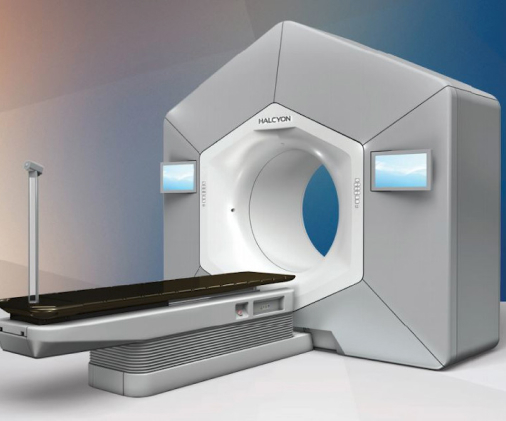
Varian TrueBeam STX
The Varian TrueBeam STX linear accelerator is state-of-the-art equipment that allows you to perform all the latest radiotherapy and radiosurgical cancer treatments on a single device. The radiation source generated by the linear accelerator is located outside the patient's body, so this type of treatment is called remote (external) radiation therapy.
A precise high dose of radiation is delivered precisely in a short time. The device makes it possible to generate radiation, which, when the beams are distributed, will exactly correspond to the given volume - the shape of the tumor. This allows selective irradiation of malignant foci, sparing treatment of vital organs.
The linear accelerator operates in two modes: generation of photon radiation or extraction of an electron beam.
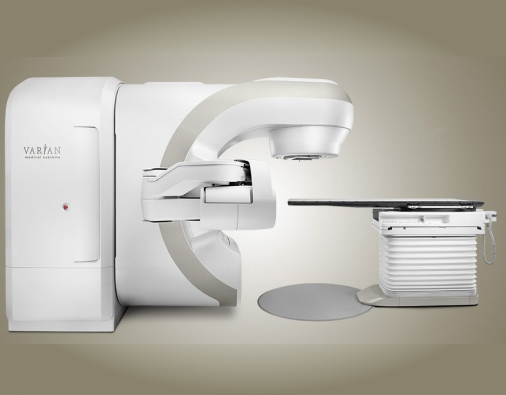
Xstrahl 200
The Xstrahl 200 X-ray therapy device is a universal system for the treatment of oncological diseases, including at the palliative stage, providing excellent clinical results. The device combines the possibilities of surface and orthovoltage therapy. It has a built-in fractionated dose control system to ensure complete patient safety.
Irradiation of the affected area using Xstrahl 200 ensures that there are no side effects on the affected and adjacent healthy tissues.
Statistics from leading oncology centers and institutes show that today the Xstrahl 200 system is optimal in the process of successful treatment of superficial skin cancer.
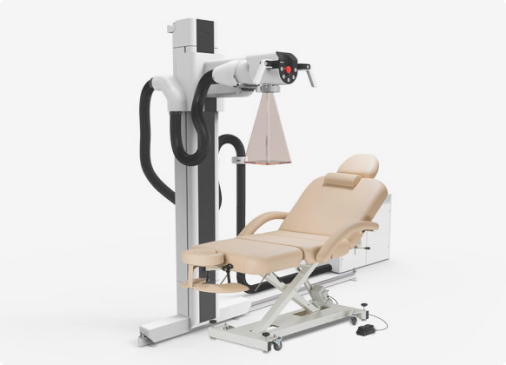
Stationary
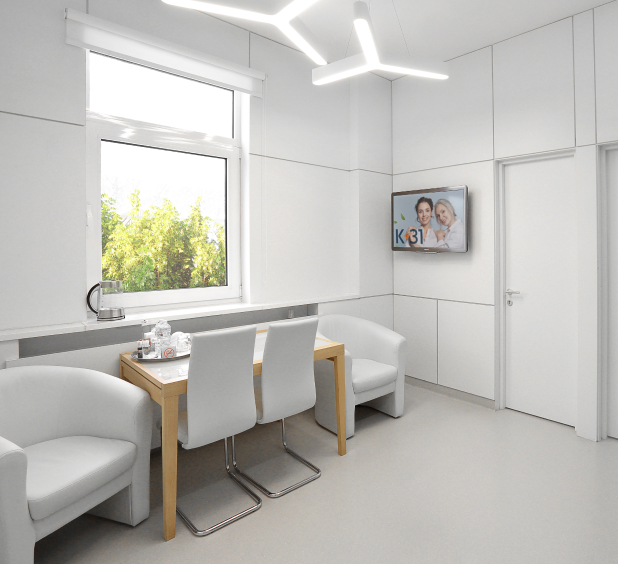
Modern equipment and minimally invasive techniques allow doctors to use epidural anesthesia more often, which significantly less affects the functioning of the heart, kidneys and liver than general anesthesia. This is especially true when helping people of age.
Many patients, especially older ones, have chronic diseases of other organs and systems that are contraindications to general anesthesia. Epidural anesthesia removes the restrictions on surgical treatment in such patients.
During the postoperative period, the K + 31 clinic accommodates its patients in comfortable rooms designed for one or two people.
Stays in the wards of the day and round-the-clock hospital include:
- Constant supervision of duty personnel
- Regular doctor's rounds
- Four meals a day, taking into account the characteristics of the condition
- Ability to hire a babysitter
- Staying with a relative
All rooms are equipped with an alarm button, by pressing which you can instantly call the specialist on duty. Our qualified doctors, attentive and caring staff will help you recover as soon as possible.
Price

Mechanism of cancer occurrence
The basis of the mechanism is a violation of the regulation of cell growth in tissues. Normally, cells in the body are renewed, but when genes are mutated, as well as when exposed to adverse external factors, cells with damaged DNA are formed. They multiply rapidly, causing the appearance of a neoplasm, for which the term malignant is used. tumor.
They are distinguished from benign tumors by 3 features:
- Infinite, uncontrollable growth
- Injury to organs and tissues located near the site of primary localization
- Metastasis, in which cancer cells migrate through the blood or lymph to different parts of the body.
Timely access to a doctor and receiving high-quality oncological care is the main condition for stopping the development of a cancerous tumor.
Causes of cancer
There are many reasons for the appearance of malignant neoplasms, including:
Improper nutrition.
A large number of carcinogens enter the body, promoting cell mutation. An unbalanced diet with a predominance of one or another group of nutrients has an adverse effect on health. For example, excessive protein consumption can cause colorectal cancer; a large amount of animal fat leads to the degeneration of pancreatic cells and, as a result, the development of oncology.
Aging.
In which the body's defense mechanisms are weakened, helping to destroy mutated cells to their rapid reproduction.
Viruses.
When a person becomes infected with the oncogenic papillomavirus type, there is a risk of developing cervical cancer (one of the most frequently diagnosed types in gynecology). Hepatitis B, C can cause cancer liver, Epstein-Barr virus leads to the development of lymphoma, etc.
Genetic predisposition or hereditary forms of oncology.
The chance of getting cancer is 5-10%. For patients who have had cancer in the family, this figure increases to 20-30% (genetic predisposition). Hereditary cancer is a mutation of individual genes, for example, BRCA. This is a gene that increases the likelihood of developing diseases such as breast or ovarian cancer by 80%.
Bad habits, including smoking, excessive drinking or drug addiction.
For example, substances from tobacco smoke have a negative effect not only on the lungs, but also on ENT organs, digestive system. Drug addiction disrupts the immune system. They lead to lymphomas, sarcomas, leukemias.
Precancerous diseases.
For example, adenomatous intestinal polyps can degenerate into malignant cells and lead to colorectal cancer, untreated endometriosis provokes endometrial cancer, etc. Against this background, preventive screening examination becomes important. It helps to identify the disease and select adequate treatment that will prevent the development of cancer. You can make an appointment with a doctor for examination by calling the contact phone number listed on the website.
Exposure to ionizing radiation, in particular ultraviolet (may cause skin cancer).
This is especially true for people living in areas with unfavorable background radiation. Radiation therapy increases the likelihood of secondary tumors.
Bad ecology.
Soot, exhaust gases and other substances emitted into the atmosphere as a result of the work of various industries industry, increase the risk of mutations in body cells.

Types of cancer
Scientists know many types of cancer. The name of the site is often used to refer to the primary tumor. localization, such as lung cancer. Contrary to popular belief, not every oncology can be called malignant tumor. In a professional setting, physicians use this term for carcinomas, i.e. tumors from epithelial tissues. Neoplasms of a malignant type from other tissues - sarcomas. Origin distinguish the following types of cancer:
-
Solid.
Appear in organs and do not contain liquid components (carcinomas and sarcomas). - Hematological.
Formed in the cells of the blood and lymphatic system (lymphomas, leukemias).
For early detection of pathology, tumor differentiation and monitoring the effectiveness of treatment, specialists at the K+31 clinic use functional radiation diagnostics. It includes radiography, computed tomography (CT), magnetic resonance imaging (MRI), ultrasound examination (US), radionuclide diagnostics, interventional radiology.
How cancer spreads
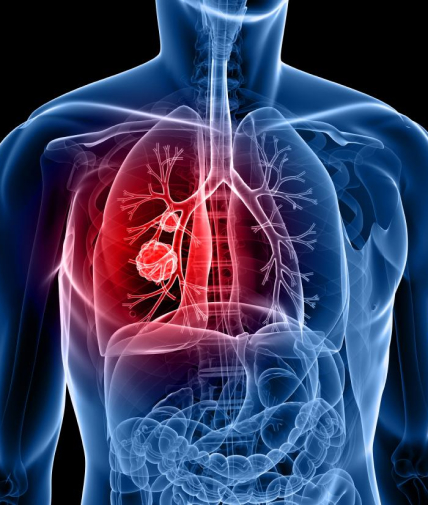
The altered cells, as they grow, penetrate the lymphatic or blood vessels, as a result of which they end up in different parts of the body, where they continue to grow and form new tumors. The process of metastasis is not typical for every type of disease.
Secondary tumors are characterized by a histological picture and molecular genetic abnormalities similar to the primary lesion. This allows oncologists to use identical treatment methods for both the main tumor and metastases. Another mechanism of spread is damage to the tissues surrounding the tumor (most often detected during a biopsy).
There are different ways to classify cancer in oncology. Based on the location of the primary tumor, cancer:
- Skins
- Uterus
- Lungs
- Stomach
- Uterus
- Breast
- Larynx
- Prostate
- The brain or spinal cord
- Intestines
- Kidneys, etc.
- Ovary
There is a histological classification. Each group of tumors is characterized by the presence of different types and types, differing in characteristics, prognosis for healing, etc. For example, carcinomas are classified into many morphological types, including adenocarcinomas or glandular, squamous, basal cell, light cell and others.
Neoplasm of the sarcomoidal type are:
- Affecting bones (hard tissue sarcoma, for example, osteosarcoma, chondrosarcoma, parosteal, etc.).
- Affecting lymph, muscle, fat, blood, or embryonic cells (soft tissue sarcoma, e.g., fibrous histiocytoma, fibrosarcoma, dermatofibrosarcoma, neurogenic, liposarcoma, synovial, lymphangiosarcoma, rhabdomyosarcoma, etc.)
Lymphomas are divided into lymphogranulomatosis and non-Hodgkin's (including diffuse large cell, marginal, anaplastic).
Leukemias are divided into 2 broad categories depending on which cells are affected by the cancer. Isolate myeloid or myelogenous leukemia (a neoplasm in myeloid cells) and lymphocytic leukemia (a tumor developed from lymphoid cells).
The exact type of cancer is determined by the attending physician based on the results of a comprehensive examination of the patient. Meet cases where one person has more different types of cancer. The oncology clinic of the K+31 medical center employs highly qualified specialists who will diagnose using modern equipment and prescribe adequate treatment.
Treatment Methods
The main method of treatment for various types is surgery. During the operation, the doctor can completely remove the organ, surrounding tissues or lymph nodes, or only the primary tumor with metastases (in organ-preserving operations). Whenever possible, oncologist surgeons use laparoscopic methods and robotic technology in their practice, as this helps preserve the organ and minimize damage to healthy tissue. This applies to both the general surgical department and urology oncology. When it is impossible to remove the tumor and metastases 100%, the doctor performs a palliative operation in order to reduce the size, get rid of certain complications, and prolong the patient’s life. For this purpose, therapeutic methods of inhibiting tumor growth are also included in the treatment.
For the treatment of cancer is used:
Radiation therapy.
Its essence lies in ionizing radiation that destroys cancer cells. Distinguishes different types similar therapy, including brachytherapy (irradiation source is introduced into the neoplasm), gamma knife (equipment for the concentration of gamma rays and local impact on the focus) and others.
Chemotherapy.
Before surgery, neoadjuvant is performed, after adjuvant. Chemotherapy can also be the main source of treatment, especially if the operation is impossible or ineffective.
Targeted therapy.
It is a modern method of combating cancer. Special drugs are responsible for the inhibition of target molecules (found in cancer cells and help them multiply). Is different from conventional chemotherapy with a high level of efficacy and safety.
Immunotherapy.
Leading edge in cancer treatment. Based on the use of natural antitumor immunity of the body.
The oncology department of the K+31 medical center is equipped with the most modern equipment. To carry out conservative therapy, we use the latest generation of drugs, and perform minimally invasive surgical operations under the control of high-tech endoscopic equipment. Specialists are always looking for the optimal treatment regimen. All patients, in accordance with the established procedure, receive the necessary documents, for example, a sick leave certificate.
Cancer statistics in Russia
Least of all, doctors encounter cancer in Dagestan (about 153 cases), Chechnya (about 162 cases), the Republic of Tyva (about 193 cases). Calculations are made per 100,000 population.
People with bad habits, as well as those who refuse preventive and screening examinations remain the main risk group.
In Russia, a decrease in the number of oncological diseases is gradually observed. For 2021, a little over 580,000 cancer patients. The prevalence of the problem is uneven. Specialists highlight a number of regions where oncology is most often found:
- Yaroslavl region - 526.3 patients per 100,000 people.
- Sakhalin region - 536.3 cases.
- Nizhny Novgorod region - 521.1 cases.
Being overweight increases your risk of cancer



